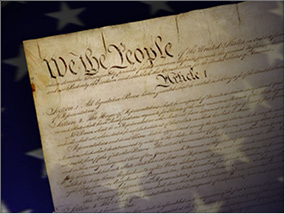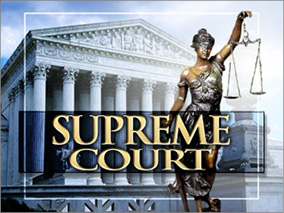Laws, litigation and betrayal
By FinalCall.com News | Last updated: Jun 19, 2013 - 6:51:59 PMWhat's your opinion on this article?

|
EDITORIAL
The Supreme Court case Shelby Vs. Holder, which is under review goes back to earlier this year. “Shelby County, Alabama, filed suit in district court, claiming that Section 5 and Section 4(b) of the Voting Rights Act are unconstitutional. Two courts then ruled that those sections were constitutional,” the National Constitution Center said.

|
“During those February hearings, the conservative majority of the Supreme Court didn’t appear to be swayed by arguments by the Obama administration to keep the ‘preclearance’ requirement in Section 5 of the law. That provision requires all or parts of 16 states, including virtually the entire Southern region of the United States, to get Justice Department approval before changing election districts, voting rules, and polling locations,” the National Constitution Center said.
But the issue is bigger than this major high court decision and goes to the heart of the status, or non-status of Black people in this country. From the start we were never counted as human beings fully and only counted to the degree, three-fifths of a person, that our presence would benefit our slavemasters. The original framers of the Constitution included nothing that afforded us rights because as property, and a potentially “troublesome species of property,” we had no rights.
But with the 13th Amendment to the Constitution came outlawing of slavery and involuntary servitude “except as a punishment for crime whereof the party shall have been duly convicted shall exist within the United States.” The 13th Amendment was ratified by the states on December 6, 1865. It was a first step to bring Blacks into American society.
Then came the 14 Amendment, ratified July 9, 1868, which granted citizenship to “all persons born or naturalized in the United States,” ex-slaves included. “In addition, it forbids states from denying any person ‘life, liberty or property, without due process of law’ or to ‘deny to any person within its jurisdiction the equal protection of the laws.’ By directly mentioning the role of the states, the 14th Amendment greatly expanded the protection of civil rights to all Americans and is cited in more litigation than any other amendment,” according to the Library of Congress. Another step and another definition on paper but something that remained far from reality.
Next came the 15th Amendment that gave Black men voting rights, and said “right of citizens of the United States to vote shall not be denied or abridged by the United States or by any state on account of race, color, or previous condition of servitude.”
“Although ratified on February 3, 1870, the promise of the 15th Amendment would not be fully realized for almost a century. Through the use of poll taxes, literacy tests and other means, Southern states were able to effectively disenfranchise African Americans. It would take the passage of the Voting Rights Act of 1965 before the majority of African Americans in the South were registered to vote,” notes the Library of Congress.
Why was it necessary to continually define and specifically “protect” Black people? Because while laws were written, the law of White Supremacy and Black inferiority written in the hearts of recalcitrant Whites in the South, in particular, never changed and they had no intention of changing.
Their Northern brethren weren’t much better and eagerly fully readmitted the traitorous sons of the South into the Union with the Compromise of 1877, which allowed Republican Party candidate Rutherford Hayes to become president and in exchange federal troops and protections were withdrawn from the South and Whites asserted their control once again.
This decision and the betrayal of Black voters by the Republican Party at that time came six to seven years after an amendment was passed that was supposed to protect Black rights—so much for the rule of law and justice.
The hearts of Whites in the South remain unchanged today and the efforts to strip away 1960s protections are their reaction to a growing Black and Brown presence in Alabama and reflect White determination to keep power. Despite demographics and an aging White population and younger non-White population, there is no desire to share or cede power, democracy and democratic principles be damned. Just like in 1877, there is a desire to leave Blacks vulnerable and once again subject to the tricks and whims of their former slavemasters.
But the trickery isn’t limited to the South, in recent presidential elections we have seen Blacks in places such as Ohio deprived of the right to vote and in the 2012 election, an official in Pennsylvania openly talked about Republican strategies to suppress the Black vote.
But it was even bigger than Pennsylvania, with Republicans in Ohio, Pennsylvania, Florida, Virginia, Texas and other states pushing voter ID laws, cutting and changing early voting and otherwise trying to discourage and confuse Black voters.
So whichever way the Supreme Court decides, history tells us the determination to deprive Blacks of rights and power won’t stop, it will only morph and become more insidious, if that is possible.
It also raises a question for Black America: Shall we continue to push, prod and struggle for a place in a dying nation that does not want us or shall we strike out on our own? Centuries have shown us that America has no regard for us, do we have any regard for ourselves? If we do we will acknowledge we cannot get along with our former slavemasters in peace and the time has come to separate and build our own reality. Nothing less, not more litigation or legislation, will do.
INSIDE STORIES AND REVIEWS
-
-
About Harriett ... and the Negro Hollywood Road Show
By Rabiah Muhammad, Guest Columnist » Full Story -
Skepticism greets Jay-Z, NFL talk of inspiring change
By Bryan 18X Crawford and Richard B. Muhammad The Final Call Newspaper @TheFinalCall » Full Story -
The painful problem of Black girls and suicide
By Charlene Muhammad -National Correspondent- » Full Story -
Exploitation of Innocence - Report: Perceptions, policies hurting Black girls
By Charlene Muhammad -National Correspondent- » Full Story -
Big Ballin: Big ideas fuel a father’s Big Baller Brand and brash business sense
By Bryan Crawford -Contributing Writer- » Full Story






 Click Here Stay Connected!
Click Here Stay Connected!








